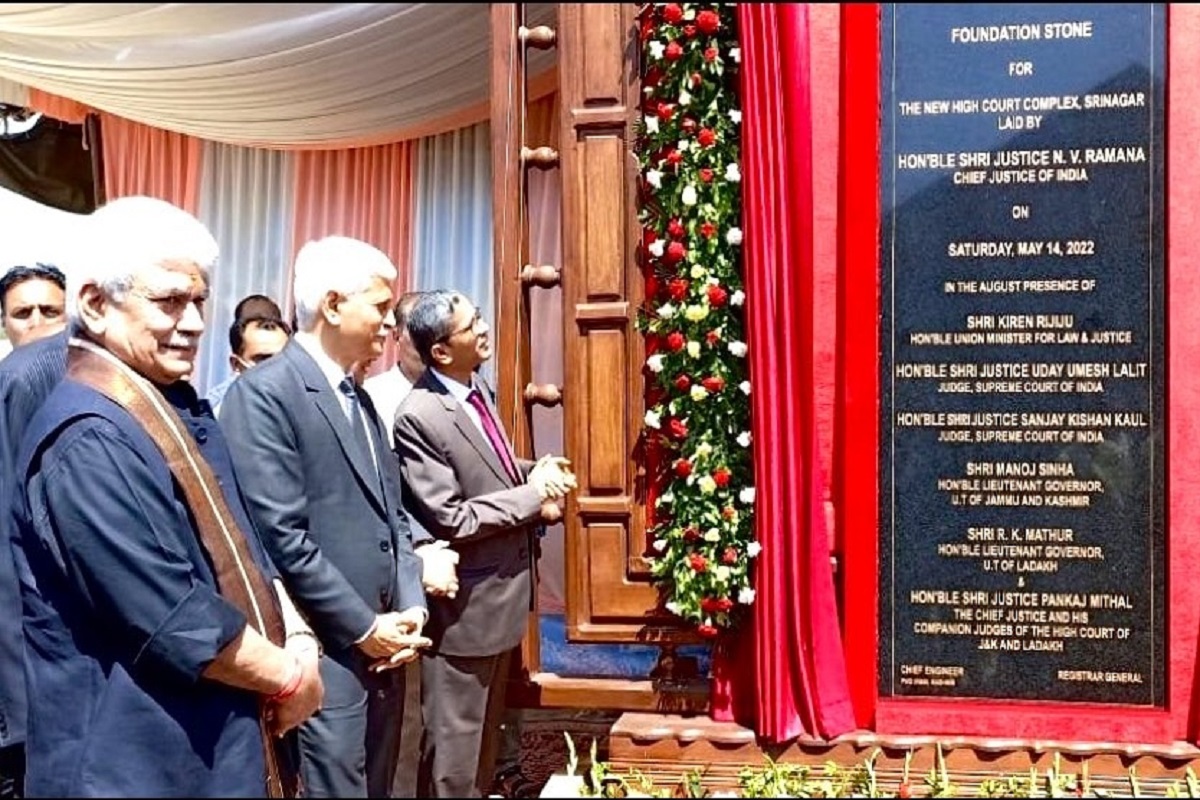SC steps in
The court’s decision to take custody of the entire election record, including ballot papers and videography of the electoral process, is a decisive move toward unravelling the truth behind the alleged vote tampering.
The common man always considered the judiciary as the ultimate guardian of rights and liberties.

Photo: SNS
Chief Justice of India NV Ramana on Saturday stressed peace shall only prevail when people’s dignity and rights are recognised and protected.
The CJI made these remarks after laying the foundation stone of the new high court building complex in Srinagar that will be built at a cost of Rs 310-crore with the premises spread across 1.7 lakh sqm and will have all modern facilities and amenities.
Lieutenant Governors of J&K and Ladakh UTs, Manoj Sinha and RK Mathur and Union law minister Kiran Rijiju along with Supreme Court Judges UU lalit and Sanjay Kishan Kaul were among those present at the event.
Advertisement
The CJI emphasized that mere laws were not enough to build tradition, it requires men of high ideals to infuse life in the skeleton of law. “Denial of justice would ultimately lead to anarchy. Soon the institution of judiciary would be destabilized as people will look for extrajudicial mechanisms. Peace shall only prevail when people’s dignity and rights are recognised and protected.”
He emphasized that for the functioning of a healthy democracy, it is imperative that the people feel that their rights and dignity are protected and recognised, and expeditious adjudication of disputes is the hallmark of a healthy democracy.
The common man always considered the judiciary as the ultimate guardian of rights and liberties.
He said often, litigants are under a lot of psychological stress and they may be illiterate, unaware of law and have various financial issues and the judges should try to make them feel at ease.
Justice Ramana said sadly, post-independence, judicial infrastructure has not been overhauled to meet the demands of growing needs of modern India.
“We are far behind in making our courts inclusive and accessible. If we don’t attend to this urgently, the constitutional ideal of access to justice would stand defeated. The condition of judicial infrastructure across the country is far from satisfactory. Courts are operating from rented accommodations and under deplorable conditions.”
The CJI added that one of the major challenges to the protection of rule of law and human rights is the inability of the formal justice system to deliver speedy and affordable justice to all.
Union law and justice minister Kiran Rijiju said a pact will soon be signed between the National Legal Services Authority and the department of justice to develop a framework of pro-bono lawyers for the people living in far-flung areas.
He also stressed the importance of legal awareness and legal education. Rijiju said equal fund allocation will also be made for the lower and subordinate judiciary in Jammu and Kashmir and Ladakh.
Advertisement